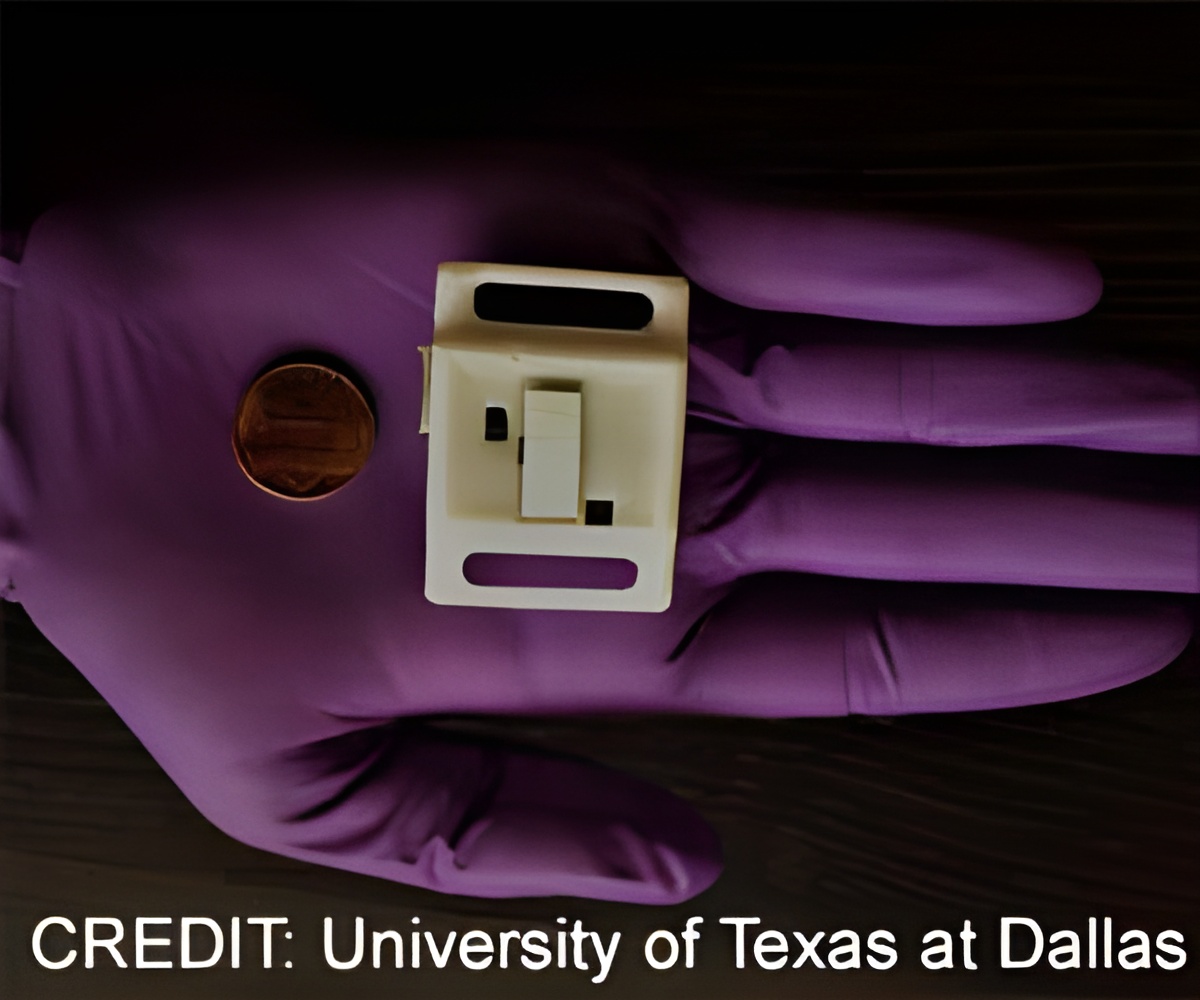A wearable sensor developed by researchers has the ability to detect two biomarkers in the swear to help people with inflammatory bowel disease (IBD).

‘A wearable sensor can monitor the levels of interleukin-1β and c-reactive protein (CRP) in passive sweat of inflammatory bowel disease (IBD) patients. It has the potential to empower patients to be actively engaged in monitoring their disease and managing it.’
Read More..




The sensor detects and quantifies the presence of two important biomarkers which is associated with inflammatory bowel disease:Read More..
- Interleukin-1β
- C-reactive protein (CRP)
The technology can be used to provide a warning for inflammatory bowel disease. However, it cannot be used as a diagnosis of inflammatory bowel disease.
The ultimate goal of the work is to develop a device that can help patients gain more control over inflammatory bowel disease, which can be unpredictable.
The device was tested on 20 healthy individuals. The researchers wanted to show that the 2 biomarkers could be tracked in people without IBD. They also wanted to establish the levels of biomarker in healthy people without IBD.
Advertisement
The sweat is collected on a removable strip inside the wrist device that must be changed daily.
The device prototype will also be tested on volunteers with IBD in the second phase of the research. It needs to undergo further testing before it can be made available to IBD patients.
The device also has the potential to track other diseases and conditions marked by an inflammatory response.
The research team is investigating whether the device could alert people when there is an increase in cytokines. Cytokines are proteins released by the immune system at the early stages of a viral infection, like COVID-19.
Inflammatory bowel disease (IBD) is characterized by a chronic or recurring immune response. The cells lining the intestines are attacked when the body mistakes food, bacteria and other materials for foreign substances, resulting in inflammation.
Symptoms for IBD include fatigue and abdominal pain, with diarrhea in Crohn's disease patients and stool urgency in ulcerative colitis patients.
Intestinal inflammation is currently measured using endoscopy. Endoscopy is the insertion of a long, thin tube into the body to view internal organs or tissue.
Endoscopy is too invasive to be feasible for frequent monitoring of the disease. This disadvantage creates challenges in recruiting patients for clinical drug trials.
"A wearable microsensor device would have the potential to empower patients to be actively engaged in monitoring their disease and managing it," Honig said.
"It would greatly facilitate clinical research and potentially could be used in the long term to facilitate proactive management, where you have a target biomarker level you're trying to achieve over a certain period of time, and you optimize care to get there,"he added.
Source-Medindia














